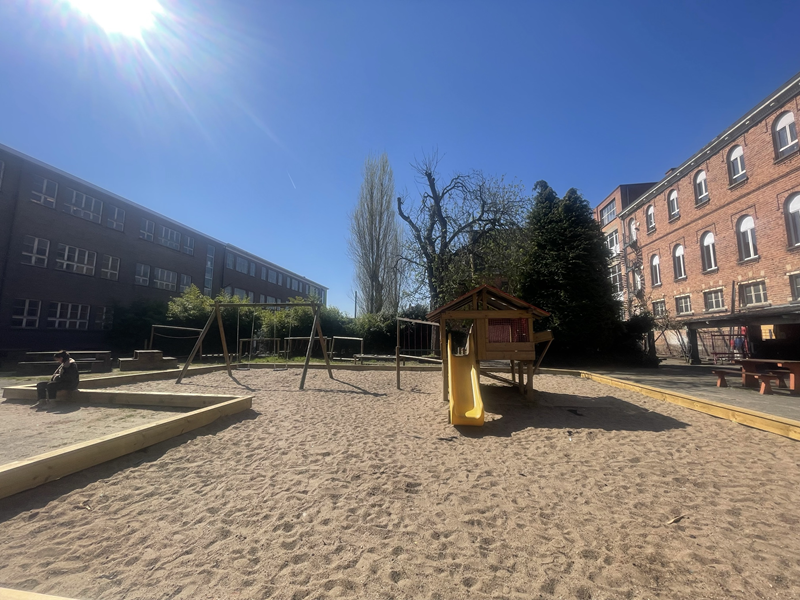Guiding children in migration towards independent adulthood
The teenage years are an exciting time of self-discovery and exploring life. But navigating this period often requires support. For many, parents provide that guidance. But for unaccompanied children who have left their homes and arrived in a new country, guardians can play a crucial role by offering support and encouragement toward independence, helping them grow into confident, resilient adults.
From the moment children who have migrated arrive in Europe, guardians help them navigate complex bureaucratic systems and support their integration into the community. They help to ensure that the child has access to safe accommodation, education, healthcare, and that their best interests are considered in all decisions—including those about their future. Guardians also represent the child in administrative and legal proceedings as a consistent and trusted advocate.
Despite its importance, guardianship systems across Europe face significant challenges, including a shortage of trained guardians. To address this, the Belgian Red Cross partnered with seven other organisations to implement GuardianXchange, a transnational project co-funded by the European Union’s Asylum, Migration and Integration Fund (AMIF). The project aims to enhance the quality and capacity of guardianship institutions in Belgium, Poland, Portugal, and Slovenia through cross-border cooperation, peer learning, and the exchange of best practices.
In 2024, 36,290 unaccompanied children applied for asylum in the EU for the first time. Belgium ranked sixth, accounting for 6.3% of these applications[1]. In Belgium, the project has focused on supporting the transition to adulthood, as many unaccompanied children are 16 or 17 years old. Turning 18 brings major changes to their legal status, housing, education, and access to support services. Often, they lose access to child-specific protections and their appointed legal guardian, even if they are not yet fully independent. If appropriate support is not in place, it can have lasting consequences for their wellbeing.
Ten professional guardians currently work for the Belgian Red Cross, while they also support the Belgian administration to train volunteer guardians – private citizens who support unaccompanied children on a non-professional basis and are supervised under national legislation. “I accompany 25 children. I begin by analysing each child’s situation to identify their strengths and needs. My role is to inform them about their rights and responsibilities and to explore the different options available to them. I collaborate with experts from various fields: education, legal services, and even family and friends when possible. Building a relationship of trust is essential. Ultimately, my goal is to support them from when they arrive in Belgium so that they can become independent and no longer need my help,” says Michaël, who has been working for the Belgian Red Cross as a guardian for five years, after starting as a volunteer.

To support the transition into adulthood, the Belgian Red Cross recommends that guardians organise structured, future-oriented conversations at least six months before a child turns 18. Guardians play a key role in ensuring that a support network is in place for the young adult’s future. “It's not that they always give me what I ask for, but that they believe in me,” shares one of the young people being supported, when asked about the role of the guardians. These young people have already shown remarkable strength and resourcefulness. They are eager to start a new life.
The Belgian Red Cross’ ‘transition-into-adulthood guide for guardians’ helps guide this process. It covers nine key areas: self-care; health; work and education; budget management and income provision; administration and engaging with authorities; day-to-day and leisure activities; network; mobility and transportation, and future orientation.
Despite this support, two critical factors shape a young person’s ability to become self-reliant: housing and residence status. Some children may receive a negative asylum decision and have to navigate complex appeals processes. At the same time, turning 18 often means losing access to child-specific accommodation, leaving some young people at risk of homelessness or unstable living conditions.
These are particularly vulnerable moments. The uncertainty can be overwhelming, making it difficult for young people to focus on their future. In such cases, guardians can help them to think through and prepare for all possible outcomes – whether that means returning to their country of origin or building a life in their new home.
Achieving independence requires more than legal status. It requires life skills and confidence. Guardians work closely with each young person and their support network to build these foundations. The goal is to ensure that by the time they reach adulthood and guardianship ends, they are equipped with the tools they need to thrive.
As the European Union and its Member States prepare to implement the Pact on Migration and Asylum, it is vital that enough guardians are trained and available to accompany young people throughout the entire administrative process, starting from the screening phase. Projects like GuardianXchange show that children need trusted adults to guide them through complex decisions and uncertain futures.
Above all, unaccompanied children must be treated as children first with procedures and reception conditions that reflect their needs and strengths. Without this, they risk being left behind when they most need care, protection, and hope.
Basic information
Activity name
GuardianXchange
Country
Belgium
Duration
April 2024 to March 2026
Partners
Belgian Red Cross, IOM (Belgium, Poland, Slovenia,Portugal), Administration Générale de l’Aide à la Jeunesse (AGAJ) of the Fédération Wallonie-Bruxelles, European Guardianship Network (EGN), The Portugese Refugee Council, Association of Centers for Social Work (Slovenia), Association of legal intervention (Poland)

